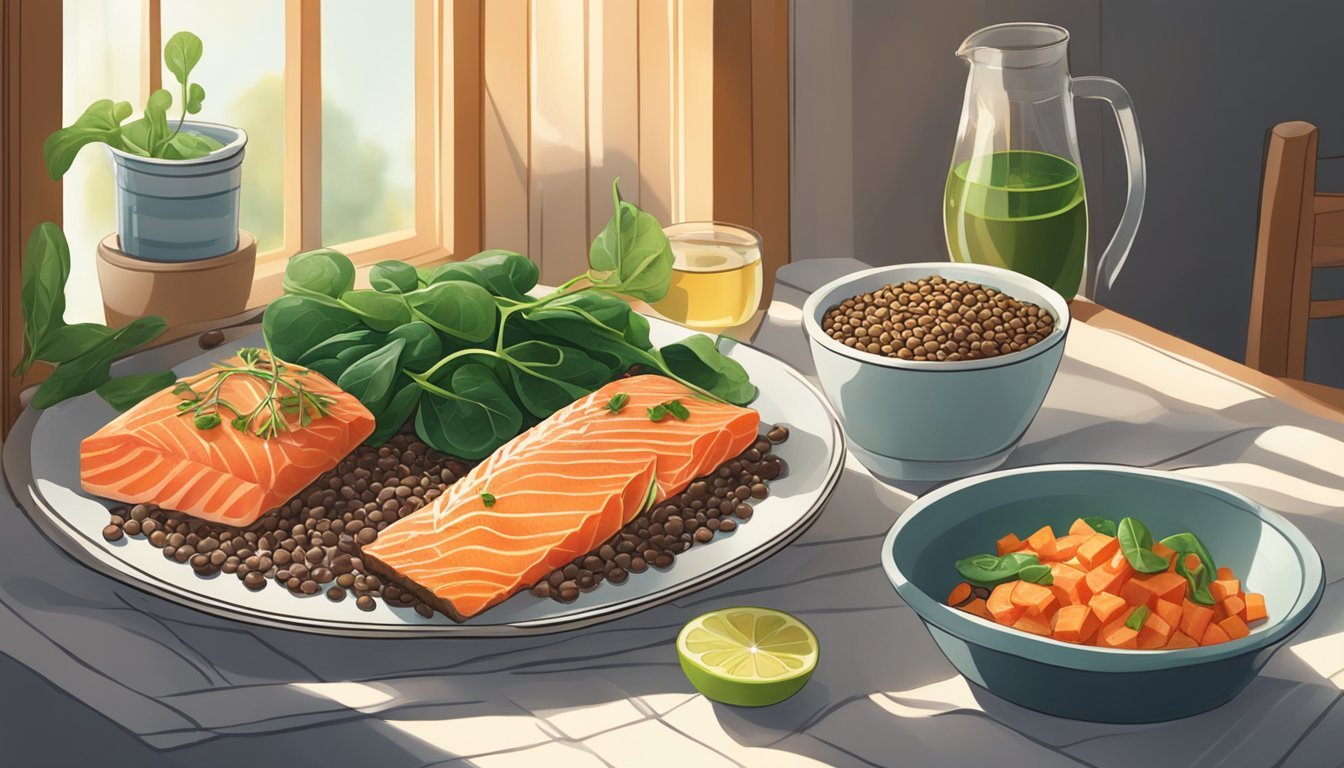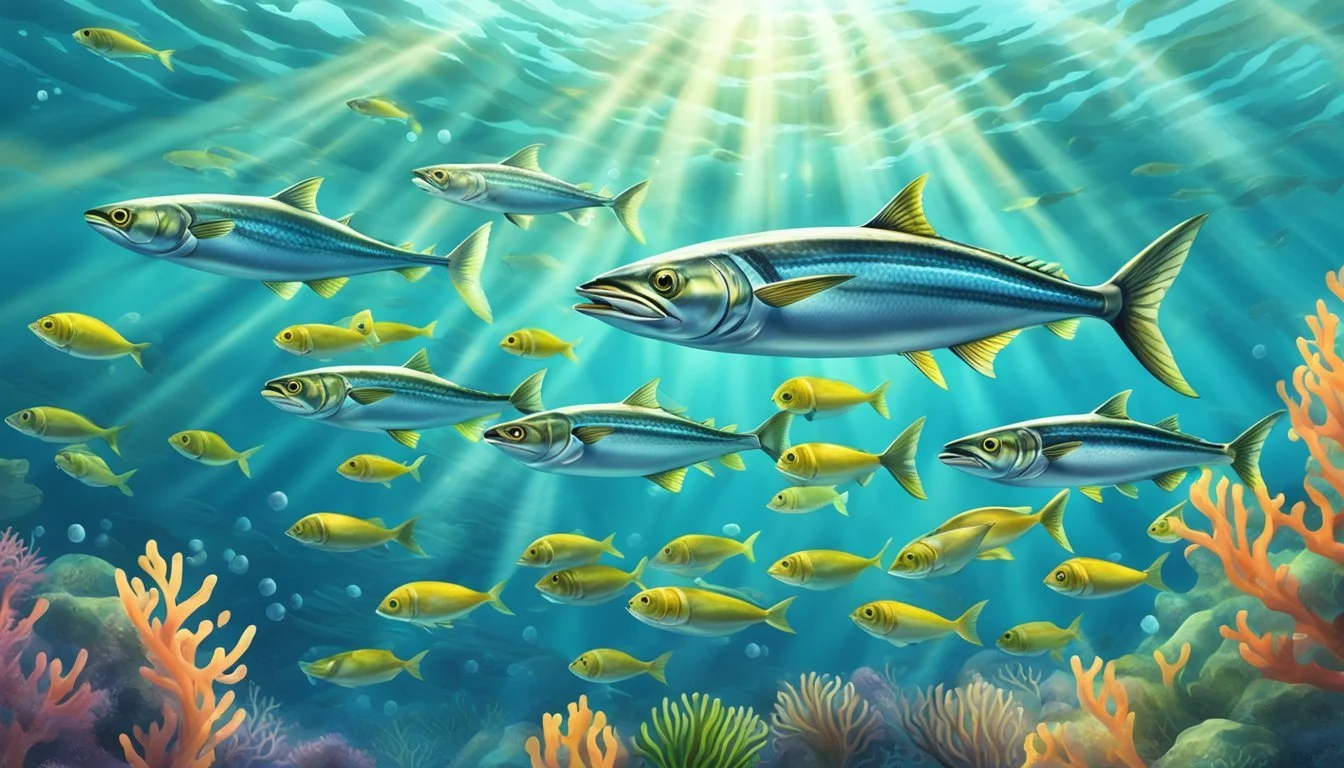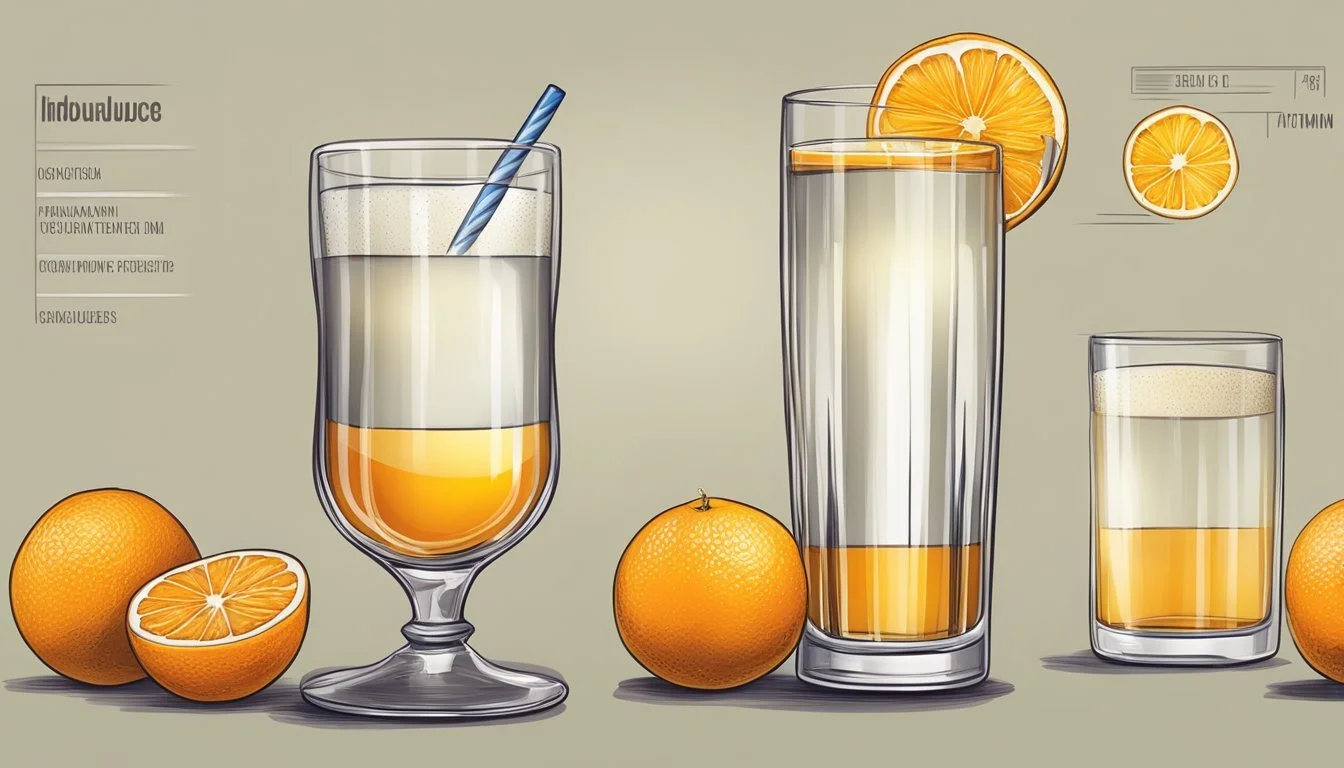Nutrient-Rich Foods High in Iron and Vitamin D
Essential Nutrients for Optimal Health
Iron and vitamin D are essential nutrients that play crucial roles in maintaining overall health and well-being. Numerous foods naturally contain these nutrients, and incorporating them into the diet can help prevent deficiencies. Including foods high in iron and vitamin D can support various bodily functions, such as energy production, immune defense, and bone health.
Both iron and vitamin D can be found in a variety of animal and plant-based foods. While meats and fish are well-known sources, many vegetables, fruits, and fortified products also offer significant amounts of these nutrients. By understanding which foods are rich in iron and vitamin D, individuals can make informed dietary choices to meet their nutritional needs.
1) Salmon
Salmon is a nutrient-rich fish known for its high content of essential vitamins and minerals. It contains significant levels of vitamin D, which is crucial for bone health and immune function.
Additionally, salmon is an excellent source of omega-3 fatty acids, which help reduce inflammation and support cardiovascular health. These fatty acids also promote brain health and cognitive function.
Iron is another key nutrient found in salmon, contributing to the production of red blood cells and preventing anemia. This makes salmon a valuable addition to any diet aimed at boosting iron intake.
Besides vitamin D and iron, salmon provides an array of other beneficial nutrients. These include astaxanthin, a powerful antioxidant that may improve skin health and protect against cellular damage.
Incorporating salmon into meals can be a tasty and effective way to enhance overall health. Whether grilled, baked, or smoked, salmon offers a versatile and nutritious option for those seeking to improve their dietary intake of important vitamins and minerals.
2) Sardines
Sardines are a nutritional powerhouse, providing a rich source of both iron and vitamin D. These small fish are highly recommended for their contribution to a balanced diet.
A 100-gram serving of sardines delivers a substantial amount of vitamin D, supplying 68% of the recommended daily allowance. This is particularly beneficial for those who have limited sun exposure.
In addition to vitamin D, sardines are also an excellent source of iron. Iron is crucial for the formation of red blood cells and the prevention of anemia.
Sardines are often canned with their bones, which are soft enough to eat. These bones provide a significant amount of calcium, promoting healthy bones alongside vitamin D.
The omega-3 fatty acids found in sardines support heart health and reduce inflammation. They play a vital role in maintaining cardiovascular health.
In summary, sardines provide essential nutrients that support various bodily functions. Their high vitamin D and iron content make them an excellent choice for those looking to boost their nutrient intake through diet.
3) Mackerel
Mackerel is a nutrient-rich fish that offers significant benefits for those looking to increase their intake of iron and vitamin D.
This oily fish is packed with omega-3 fatty acids, which are excellent for heart health. A regular mackerel fillet can provide more than 100% of the recommended daily intake for vitamin D.
In addition to vitamin D, mackerel is also an excellent source of vitamin B12 and iron. These nutrients play crucial roles in energy production and maintaining healthy red blood cells.
Eating mackerel can help improve overall nutrition by adding essential vitamins and minerals to the diet. Its high protein content also supports muscle growth and repair.
Since mackerel is relatively low in calories yet nutrient-dense, it is an ideal choice for those seeking a healthy, balanced diet. Regularly including mackerel in meals can be a simple and effective way to boost nutrient intake.
4) Egg Yolks
Egg yolks are a potent source of essential nutrients, particularly iron and vitamin D. They are packed with vitamins and minerals that support various bodily functions.
One large egg yolk contains a notable amount of iron. This mineral is crucial for transporting oxygen in the blood and supporting overall energy levels.
Egg yolks are also rich in vitamin D. This fat-soluble vitamin is essential for maintaining healthy bones and teeth. It also plays a role in immune system regulation and muscle function.
In addition to iron and vitamin D, egg yolks offer other beneficial nutrients such as vitamin B12, vitamin E, and folate. These nutrients contribute to the overall nutritional value of egg yolks.
Despite their high cholesterol content, moderate consumption of egg yolks can be part of a healthy diet. They provide a balanced mix of proteins, fats, and essential vitamins.
5) Beef Liver
Beef liver is a rich source of both iron and vitamin D, making it a valuable addition to a nutrient-dense diet.
It contains a high concentration of heme iron, which is more easily absorbed by the body compared to non-heme iron found in plant-based foods. This makes it an excellent choice for combating iron deficiency anemia.
Vitamin D in beef liver supports bone health and immune function. Since few foods naturally contain vitamin D, incorporating beef liver can help meet daily requirements, especially in the absence of sufficient sunlight exposure.
In addition to iron and vitamin D, beef liver is also loaded with B vitamins, including B12, which plays a crucial role in energy production and maintaining healthy nerve cells.
While its strong taste may not appeal to everyone, its nutritional benefits are significant. For those looking to maximize their intake of essential nutrients, beef liver stands out as a top choice.
6) Tuna
Tuna is a nutrient-dense fish that provides a significant amount of both iron and vitamin D. Including it in the diet can help meet daily nutritional requirements for these essential nutrients.
Rich in iron, tuna plays a vital role in preventing anemia. Iron in tuna supports the formation of red blood cells and helps in transporting oxygen throughout the body.
Tuna is also one of the rare food sources naturally rich in vitamin D. This fat-soluble vitamin is crucial for bone health and immune function. Additionally, vitamin D aids in the regulation of inflammation within the body.
Apart from iron and vitamin D, tuna contains other important nutrients such as vitamin B12, which further supports red blood cell production. It’s also a good source of omega-3 fatty acids, which can benefit heart health.
When consuming tuna, it’s essential to be mindful of mercury levels. Different types of tuna have varying mercury content, with albacore tuna generally having higher levels than skipjack tuna.
Including tuna in a balanced diet can provide numerous health benefits while helping to meet the body’s iron and vitamin D needs.
7) Fortified Orange Juice
Fortified orange juice is a popular source of vitamin D. Manufacturers often add vitamin D to orange juice to help individuals meet their daily nutritional needs. This can be particularly beneficial for those who have limited exposure to sunlight or dietary sources of vitamin D.
Besides vitamin D, fortified orange juice also contains other essential nutrients such as vitamin C and potassium. This makes it a nutritious choice for enhancing overall health.
It's important to choose fortified orange juice without added sugars. Checking the label can help consumers avoid excessive sugar intake while still benefiting from the added vitamins.
In addition, fortified orange juice can be an excellent option for those who are lactose intolerant or have dairy allergies, offering a non-dairy alternative to fortified milk. This makes it a versatile addition to many diets.
8) Spinach
Spinach is a nutrient-dense leafy green that offers a robust amount of iron. Iron aids in the creation of hemoglobin, essential for transporting oxygen through the body. This makes spinach an excellent option for those looking to boost their iron intake naturally.
A mere 100 grams of raw spinach provides about 2.7 mg of iron. Additionally, spinach is rich in vitamin K1, which plays a critical role in blood clotting.
Spinach also supplies a decent amount of other vitamins and minerals such as vitamin A, vitamin C, magnesium, and folate. While not a source of vitamin D, its iron content makes it a valuable addition to a balanced diet.
Combining spinach with foods high in vitamin C can enhance iron absorption. For example, try a spinach salad with citrus fruits like oranges or strawberries for a nutritious meal.
9) Kale
Kale is a highly nutritious leafy green vegetable known for its dense nutrient profile. Although not a significant source of vitamin D, kale is rich in iron, making it an excellent addition to an iron-rich diet.
A single cup of raw kale provides around 7.2 calories, 0.6 grams of protein, and 0.9 grams of carbohydrates. It is a substantial source of vitamin K, offering about 544 micrograms of the vitamin when cooked.
Iron content in kale is notable, supporting the production of hemoglobin and myoglobin in the body. These proteins are essential for transporting oxygen in the blood and muscles.
Besides iron, kale is packed with vitamins A and C. These vitamins aid in immune function and skin health. Kale also provides small amounts of potassium and calcium, which are vital for muscle function and bone health.
Given its nutrient density, kale is a valuable addition to a balanced diet. It offers numerous health benefits while being low in calories, making it a great choice for those looking to enhance their nutrient intake without adding extra calories.
10) Swiss Chard
Swiss chard, a leafy green from the beet family, is a nutrient powerhouse. It is an excellent source of vitamin K, covering multiple times the recommended daily intake. It also provides a significant amount of vitamin A.
Swiss chard offers notable amounts of iron, delivering 10% of the recommended daily intake per 100 grams.
Additionally, it contains magnesium, potassium, and calcium, contributing to its dense nutrient profile. This makes it a valuable addition to various meals.
Though Swiss chard is not high in vitamin D, it compensates with other vital nutrients. It can be enjoyed in salads, sautéed, or added to soups. Integrating Swiss chard into the diet can enhance overall nutrition.
Understanding Iron and Vitamin D
Iron and Vitamin D are two essential nutrients vital for maintaining overall health. This section explores the benefits of each nutrient and their synergistic effects on the body.
Benefits of Iron
Iron is crucial for producing hemoglobin, the protein in red blood cells that carries oxygen from the lungs to the rest of the body. Adequate iron levels are essential to prevent anemia, a condition marked by fatigue and weakness.
Iron also supports proper muscle function and enhances physical performance, especially in athletes. It is a component of myoglobin, which provides oxygen to muscles.
Additionally, iron supports cognitive function. Adequate iron intake is necessary for brain development in children and maintaining cognitive abilities in adults.
Benefits of Vitamin D
Vitamin D is primarily known for its role in regulating calcium and phosphate, essential for maintaining bone health. This vitamin aids in calcium absorption in the gut, promoting strong bones and teeth and reducing the risk of fractures.
It also plays a significant role in immune system regulation, helping to fend off infections. Vitamin D reduces inflammation and supports the function of immune cells.
Aside from bone and immune health, Vitamin D contributes to muscle strength and cardiovascular health, enhancing overall physical wellbeing.
How They Work Together
Iron and Vitamin D interact to support various bodily functions. Vitamin D can regulate inflammation, which impacts iron metabolism; reducing inflammation can improve iron absorption and utilization.
These nutrients also together support muscle health. Iron and Vitamin D deficiency can lead to muscle weakness and fatigues, so their combined intake can enhance muscle function.
Furthermore, both nutrients play a role in cognitive health, with iron supporting oxygen supply to the brain and Vitamin D contributing to neurodevelopment and cognitive function.
Iron and Vitamin D intake from foods like fish, liver, and fortified products can help maintain these essential interactions for optimum health.
Health Implications of Deficiencies
Deficiencies in both iron and vitamin D can have serious health consequences. These include anemia, bone disorders, and an increased risk of chronic conditions.
Iron Deficiency Effects
Iron deficiency can lead to anemia, which means the body does not have enough red blood cells to carry sufficient oxygen. This can result in fatigue, weakness, and pale skin.
Severe iron deficiency can cause heart issues due to increased strain as the heart tries to supply oxygen to the body. Additionally, it can lead to complications during pregnancy, such as premature birth and low birth weight.
Cognitive functions can also be impaired, affecting concentration and increasing the risk of developmental delays in children.
Vitamin D Deficiency Effects
Vitamin D deficiency impairs the body’s ability to absorb calcium and phosphorus, leading to bone disorders like rickets in children and osteomalacia in adults. These conditions result in soft, brittle bones that are prone to fractures.
Low vitamin D levels can also contribute to muscle weakness, making falls more likely, particularly in the elderly. Chronic deficiency may be linked to cardiovascular diseases and certain autoimmune disorders.
There is also evidence suggesting a connection between low vitamin D levels and mental health issues, including depression and anxiety. Thus, maintaining appropriate vitamin D levels is crucial for overall health.







